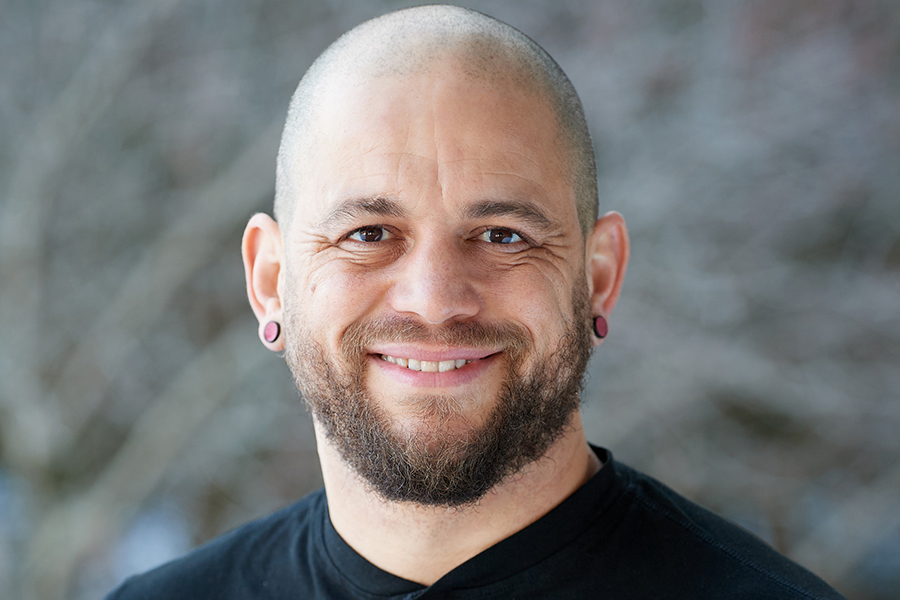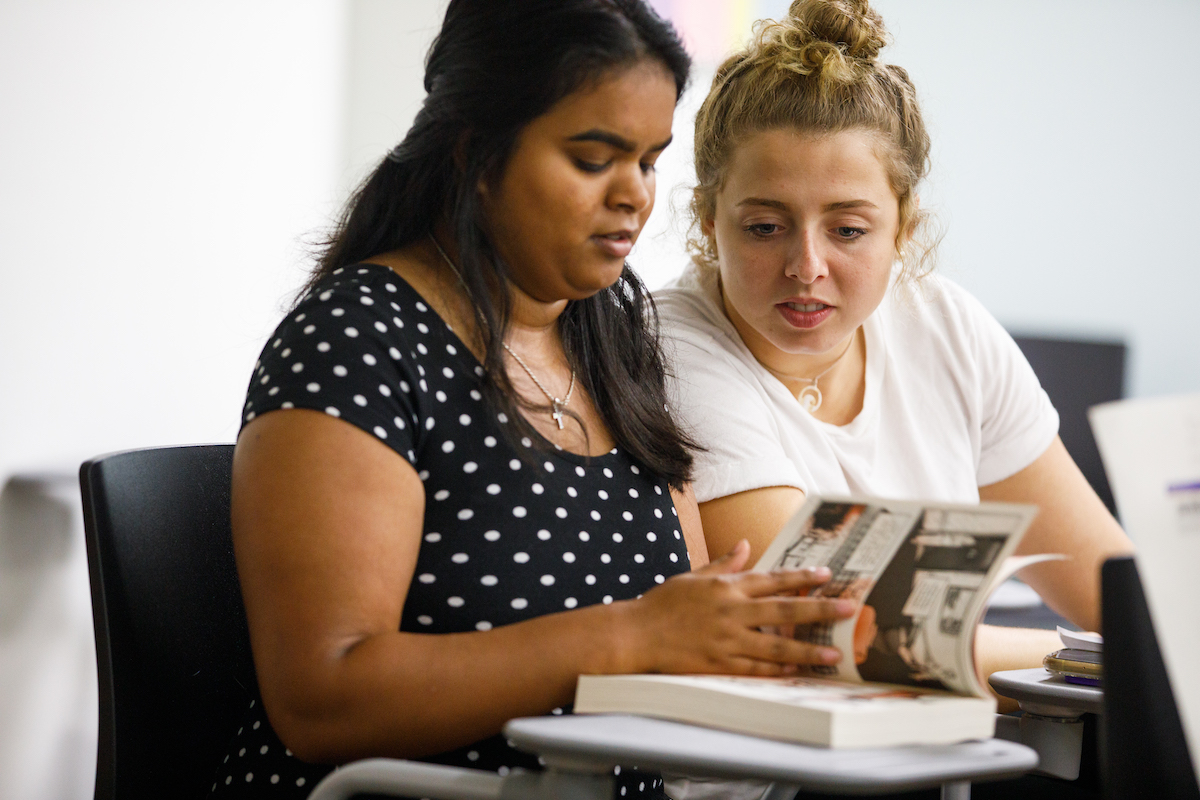Faculty Profile: Michael Dixon
Related Programs
Related Posts
Connect With Us
“I think it’s important to see yourself in the world, see people out in the world that are doing the thing you want to do, so you can believe that you can do it.”

It took some time to adjust. Hailing from the West Coast, he had to adapt to the winters and to the small-town feel. But 13 years after he first arrived in Albion, Michael Dixon, full professor and current chair of the Art and Art History Department, is happy to call Albion home. The primary reason? “What I love about this place is the people, hands down.”
As a prolific oil painter, Dixon has showcased his work all over the world, from New York City to Istanbul, Turkey. He’s been the recipient of prestigious grants and awards as well as some of the most competitive artist residencies in the world, like Yaddo. Being at Albion has given him the perfect springboard to expand his artistic vision. He lives in a neighborhood full of supportive colleagues and friends. He has created a studio space next to his house, where he retreats to focus on his current projects. He loves getting farm-fresh eggs straight from the source.
“It’s a small enough space that if you wanted to make something happen, you can really have an impact on the community, very easily.”
He sees the power of that impact when it comes to working with students. “When I have students that want to be artists, it’s one-on-one,” he said. “I stay in contact with students that have graduated. It’s a continual mentorship… I get to shepherd them to their next thing, and that’s super exciting.”
As an educator, Dixon has helped students in his Advanced Painting Class apply for exhibition opportunities before they even graduate. When he taught at Penland School of Craft in North Carolina over the summer of 2019, he took one of his students as an art assistant. He sees their ambition and inspiration when they return from attending the New York Arts Program or Albion’s Philadelphia Center. He’s also served as a mentor for students participating in the College’s FURSCA program, overseeing their own artistic projects for 10 weeks during the summer break.
“Students can really do the thing they want to do before they leave here.”
Personal Journeys
His influence also extends to those students who have no plans for a career in the arts. As a painter who explores issues of race and violence in the United States, he knows the importance of providing an environment where students can speak openly about their own experiences and listen to the personal journeys of others. In his drawing course, a foundation class that mostly attracts non-majors, he teaches a two-week anti-racism workshop. For several of his students, it’s the most they’ve talked about race in their whole lives. Dixon also makes it a point to mostly show women and POC artists in his classes, understanding that seeing such representation can give students the strength to be vulnerable as artists.
“I think it’s important to see yourself in the world, see people out in the world that are doing the thing you want to do, so you can believe that you can do it.”
When it comes to teaching, it’s this shift that most excites Dixon. He’s noticed that many first-years come in a little too focused on getting the assignment right. However, over the course of their four years, they’re comfortable with forming their own ideas and driving their own creativity.
“You can really write your own ticket,” Dixon said. “And we have the resources to make things happen.”
